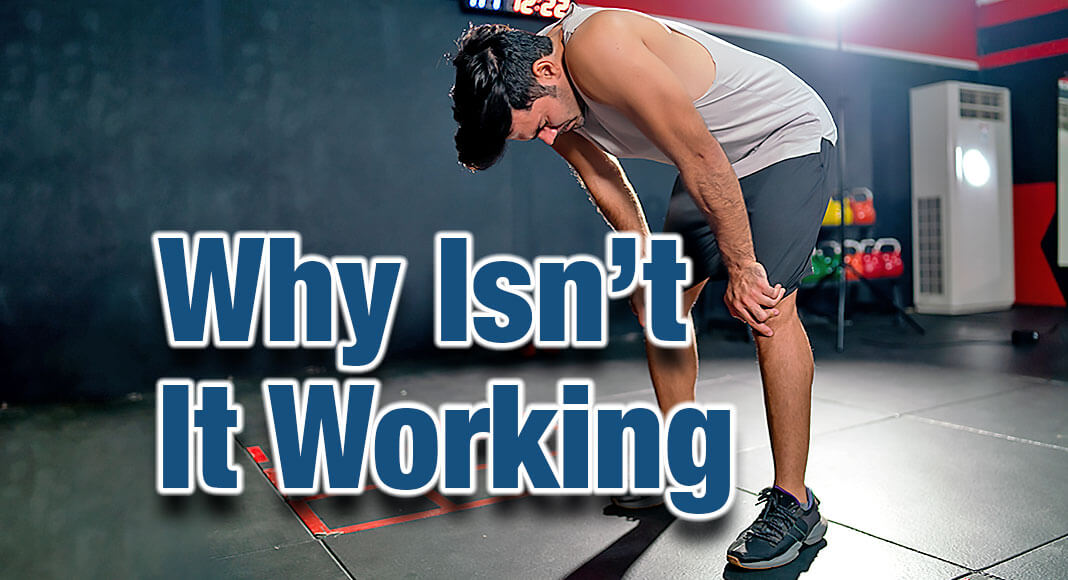
Mega Doctor News
Becoming consistent with your workout routine can be a challenge, but when you’re seeing no significant results it can be even more frustrating. Whether you’re experienced with working out or you’re new to exercise as part of a new year’s resolution, it’s helpful to know what will hinder your results to keep you on the right path.
Thankfully, experts at Fitness Volt have highlighted six reasons why you might not be seeing results, plus tips to fix them.
Neglecting sleep
Never underestimate the importance of sleep. If you’re not getting enough shut eye at night, you’ll lack energy for your workouts and therefore won’t reach your full potential when it comes to your performance. On top of this, muscles release amino acids that build protein into the bloodstream during sleep which allows them to grow and recover, meaning you can get back to exercising sooner; aim for around 7-9 hours of sleep each night, even if it means going to bed earlier than usual.
Not warming up
Warm-ups are often overlooked, despite them being a crucial element of a workout. Without warming up, you won’t have your maximum capabilities and you won’t be fully prepared for exercises as your muscles won’t be activated. Warm-ups will vary depending on your specific workout, but in general, you need to get your blood flowing into your body by some simple steps like jogging. As well as this, perform a mobility routine to help with your joints that will be most used in your workout, such as arm and shoulder circles if you are training upper body. If you’re specifically focusing on weightlifting, you can warm up by practicing the exercise with no weight – doing so will help with your form, too.
Skipping food before a workout
Skipping a meal before your workout may sound practical if you’re heading for an early morning session as soon as you wake up, but it’s vital that you eat beforehand to give your body energy. Carbohydrates in particular will give your body the fuel it needs, so opt for foods such as whole-grain cereals or whole-wheat toast with some fruit. However, stick to a small portion size so that you don’t feel sluggish for your workout.
Not consuming enough protein
Protein is an essential nutrient in your diet, whether you wish to build muscle or lose weight. If weight loss is your goal, protein supports a healthy metabolism and reduces your appetite, while it helps to build muscle by helping to repair and maintain muscle tissue. It’s recommended to consume around 1 gram of protein per pound of your body weight for optimal results, so consider adding foods like chicken, Greek yogurt, cottage cheese, and walnuts to your diet which are all high in protein. If you struggle to reach your suggested intake, consider protein shakes which you can even have on the go if you have a hectic schedule.
Not pushing yourself hard enough
It may be easy to get comfortable with the same workout routine, but this habit can only lead to losing your determination by getting bored. As your body gets used to the workout, you’ll build strength and resilience and will eventually have the ability to push yourself to the next level. For example, you will find that you will soon be able to run for a longer amount of time on the treadmill or will be able to lift heavier weights if you stay consistent with your workout. Pushing yourself to the next level avoids a plateau and keeps your muscles challenged to continue building strength.
Not letting your body rest
You may assume that the more days you spend in the gym the better your results will be, but if you’re not leaving any time to rest, this can slow the process down. Over-exercising leads your body to exhaustion, thus affecting your performance when working out and preventing you from building strength. Not to mention, letting your body recover avoids injuries which would only cause lack of exercise in the long run. Three rest days a week is generally the recommended amount, although if you are partaking in particularly intense exercise or new to working out you may need to take more depending on how your body responds.
A spokesperson from Fitness Volt has commented: “For some people, fitness can be overwhelming, from understanding the correct form for exercises to learning which ones fit your goals in the first place. So, it can be quite stressful to feel like you’ve nailed your workout routine but you aren’t seeing any results after quite some time. Fortunately, the common reasons which hinder workout results aren’t anything too complicated, and it might be something as simple as having a day off from exercising – but it’s important that gym-goers are aware to keep them on the right track.”
The research was conducted by Fitness Volt which is a comprehensive online resource dedicated to Strength Sports, from healthy eating to exercise and everything in between.
Information Source: fitnessvolt.com








